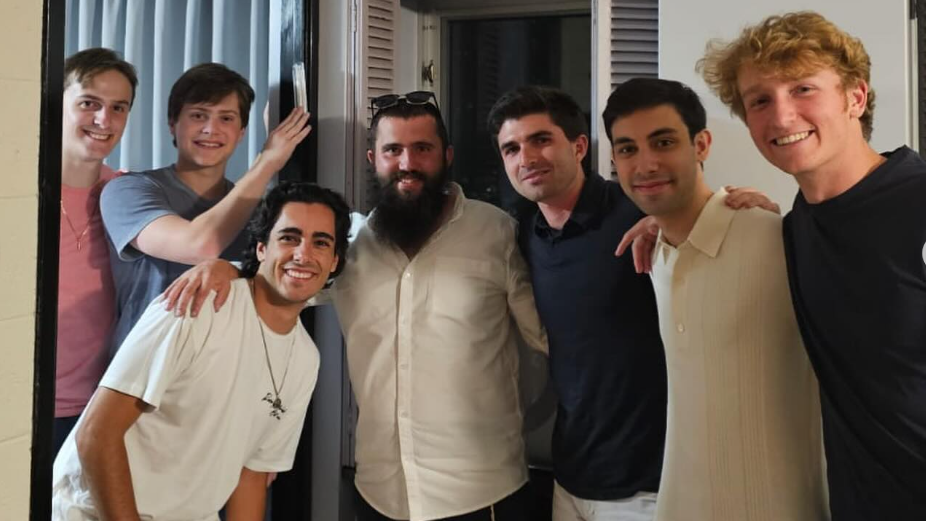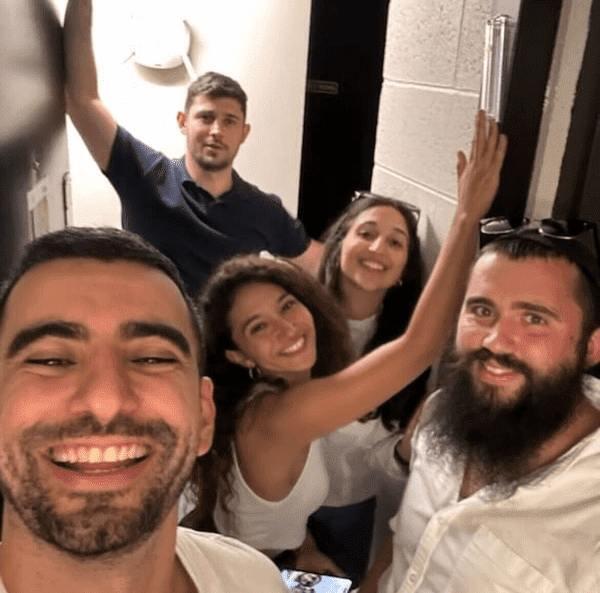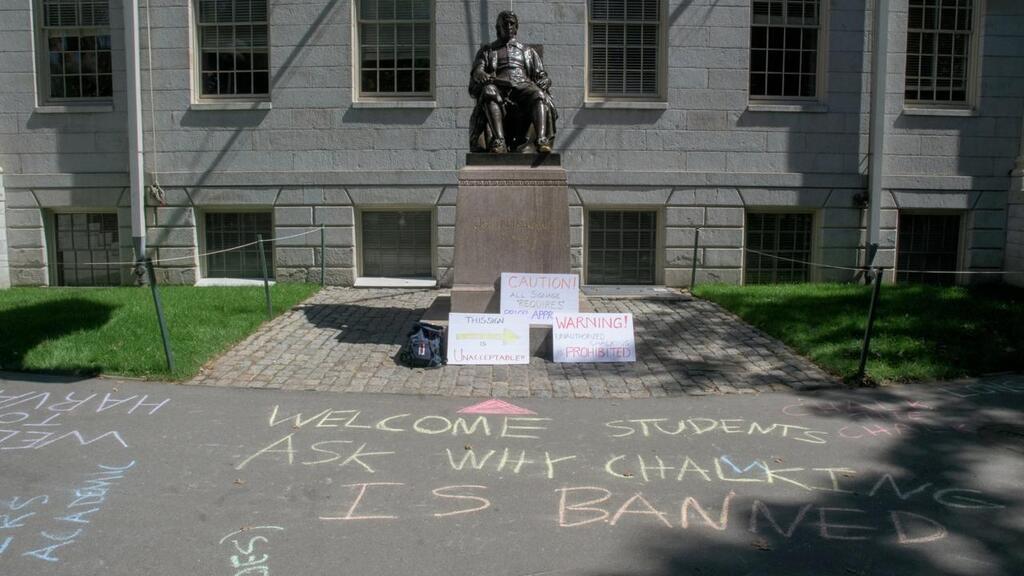Getting your Trinity Audio player ready...
Harvard University authorities are investigating the removal of a mezuzah from the dorm room of Jewish freshmen, which was later found tossed away. Jewish students on campus initiated a campaign to install dozens of new mezuzahs on their dorm doors as a show of unity and resistance against acts targeting Jews.
The mezuzah — a scroll containing a Jewish blessing of protection for the home placed on the entrance, was found on the ground by a group of Jewish students searching for it after it was removed.
“We must recognize this incident for what it truly is: a hate crime, Chabad rabbi Hirschy Zarchi wrote in the college paper, the Harvard Crimson "To tear down a Mezuzah is to send a message of intimidation and erasure,” he added. “It’s not just a matter of vandalism; it is an attack on the very identity of the Jewish community at Harvard.”
The university said the case was under investigation by campus police but didn’t provide details on whether the incident was intentional or if the mezuzah had simply fallen by accident. "Every student should feel welcomed in our Harvard community,” a Harvard spokesperson said in a statement.
"This act didn’t just hurt the student who was attacked; it hurt all of us," said Ruth, one of the students who joined the mezuzah campaign in the dorms. "We won't sit idly by while our religious identity is threatened."
Meanwhile, five Harvard professors were caught by campus police writing messages in chalk in the campus yard protesting new regulations imposed by the university after a pro-Palestinian demonstration. Among the new restrictions is a ban on writing messages in chalk and placing signs without prior approval.
3 View gallery


Harvard Chabad Rabbi Hirschy Zarchi (center) with Jewish students
(Photo: via Instagram)
The professors, some of whom had been actively involved in previous pro-Palestinian protests on campus, drew messages in pink chalk, including statements like "Why do preschoolers have more academic freedom than Harvard students?", " Long chalk to freedom ", "Caution: Chalk is dangerous ", and others expressing opposition to the new rules.
The messages were erased by university maintenance staff after an hour, not before the professors were photographed by campus police. The university said that "the incident was handled according to standard procedures" and refused to comment on whether disciplinary action had been taken against those involved.
One of the protesting professors, Prof. Steven Levitsky, said the threat of punishment for their actions "goes entirely against the type of democratic society I want to live in." According to the Jewish professor of government, he hopes that the creative protest will raise awareness about the regulations among students and show that protesting students have support from the faculty.
"We don’t always support their cause necessarily, but we firmly support their right to express themselves, their right to share opinions that might be unpopular and their right to protest," he said.
While the university tried to maintain ambiguity regarding recent developments, the two incidents are part of ongoing tensions surrounding identity, religion and free speech since October 7.
Recent reports from the university’s campus also detailed anonymous hate acts in the previous semester, including the posting of both antisemitic and anti-Palestinian flyers across the university as well as anonymous antisemitic posts on social media.
Harvard President Alan Gerber, who replaced outgoing president Claudine Gay, addressed the divisions lingering on campus following the Hamas massacre. In the months since, both Jewish and Muslim students have criticized the university's handling of incidents involving antisemitism and Islamophobia on campus.




